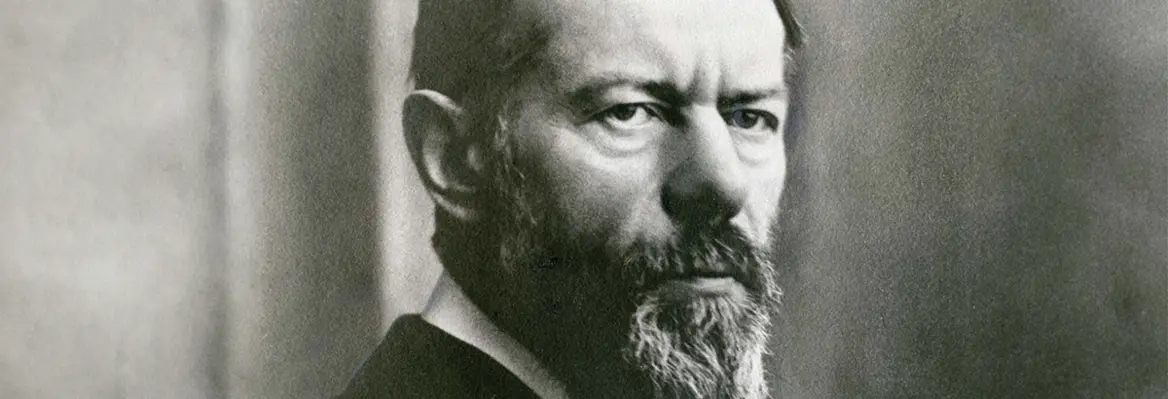Political leaders seem to come in two flavors. On the one hand, you have ideological figures concerned with grand narratives and broad issues. And on the other you have politicians who avoid ideology for pragmatism, analysis, and bureaucracy. KCL political theorist Steven Klein argues that to understand the second politician, we must look to Max Weber. From Starmer to Carney, competent politics may seem preferable to blind ideology, but these politicians betray a fatal flaw by abandoning conviction and relying on rules and bureaucracy. For these politicians to be successful, they need to learn from Weber that politics is as much about holding convictions as it is about accepting unintended consequences.
It can be hard to figure out exactly what Keir Starmer stands for, but if there is anything, it’s this: sober, realistic, and responsible political leadership. In the history of political ideas, the most famous defender of sober-minded political leadership is the German sociologist Max Weber. Speaking to students at the University of Munich in the wake of Germany’s defeat in World War I, Weber’s “Politics as a Vocation” provided a penetrating analysis of the dilemmas of political action in modern societies, introducing the apparently opposing concepts of the “ethics of conviction” and “ethics of responsibility.” Yet Weber also shows the dangers of the bureaucratic drift that stands behind Starmer’s supposed realism. For Weber, realist political leadership means harnessing enthusiasm, passion, and sweeping moral visions of the sort Starmer disdains—specifically because the realist recognizes the dangers of mindless bureaucratic government.
___
Starmer is indicative of a broader trend of bureaucrat-politicians who prize competence.
___
Starmer positions this ruthless pragmatism in contrast to both the ideological language of his predecessor, Jeremy Corbyn, and the flimsy populism of his now chief rival, Reform leader Nigel Farage. This means giving the public hard truths rather than grand fantasies. Defending the (now, of course, reversed—sometimes politics is trickier than it seems) decision to cut winter fuel allowances, Starmer said, “I’m absolutely convinced that we will only deliver that change—I’m absolutely determined we will—if we do the difficult things now.” As Carys Roberts of the Institute for Public Policy Research put it, “He almost has an allergy to ideology, he wants to be the prime minister who rolls his sleeves up and gets stuff done.”
SUGGESTED VIEWING The politics of populism With Aaron Maté, Jesse Norman, Lionel Shriver
Starmer is indicative of a broader trend of bureaucrat-politicians who prize competence. These are often individuals who rose up the ranks of the state-aligned professions before entering public life. Mark Carney, the new Prime Minister of Canada, was a central banker before his surprise entry into the Liberal Party leadership race. Within the European Union, men in navy blue suits, adept at navigating the intrigues of the Commission, wield massive power.
___
Politics is about commanding, creating order, and using the appropriate means to realise your ends.
___






















Join the conversation